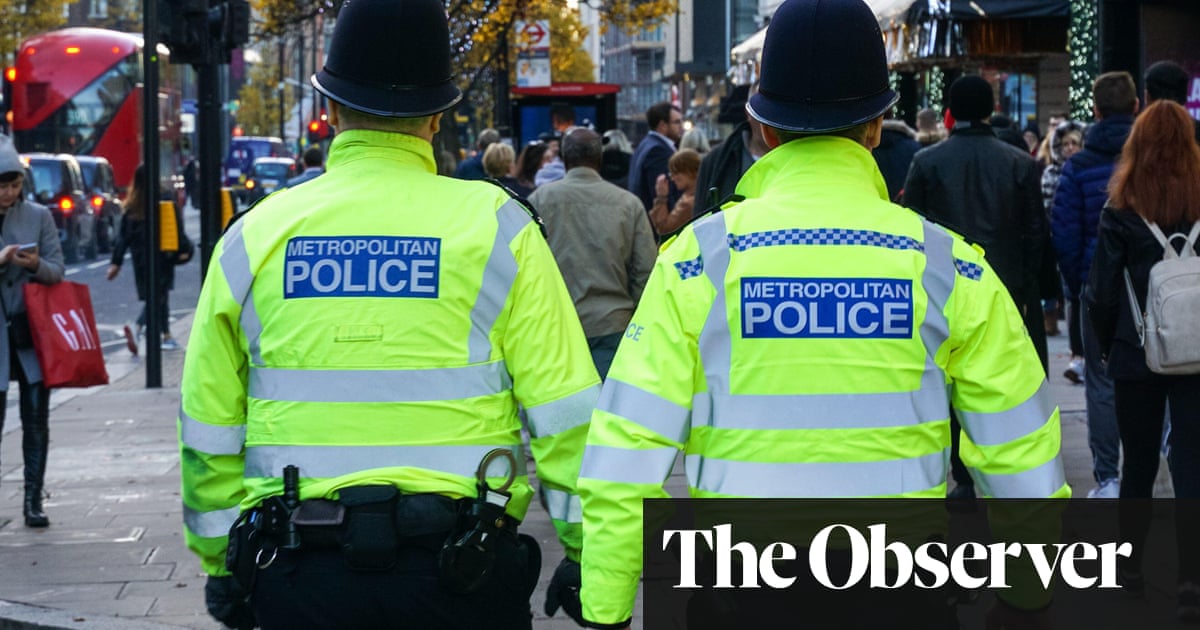
Scotland Yard is battling its biggest corruption crisis since the 1970s, its commissioner has warned, as new evidence emerged of the widespread bungling of sexual and domestic abuse claims against officers.
The review of past allegations was triggered by the David Carrick scandal, where the force missed repeated clues that the Metropolitan police firearms officer was a threat to women, while he attacked at least 12 victims over a 20-year period, committing 85 serious crimes.
In a letter released on Thursday to the home secretary and to the London mayor, the commissioner – Sir Mark Rowley – revealed that the force examined 1,131 past allegations of sexual or domestic violence by officers and staff against women from the last decade.
Only in a minority of instances (246) were police chiefs satisfied the right decisions had been made to leave those accused in the force.
But in 78% of past allegations there were concerns, while 689 cases – 61% – need further work as there were “new or missed lines of inquiry”.
In a further 196 instances from 2012 to 2022, there were concerns serious enough that these officers will be re-vetted and the danger they could pose freshly assessed. Potentially they could be forced out.
Experts have warned the real figures could be even higher, with many women never reporting attacks in the belief nothing would be done.
Rowley said the mission to root out wrongdoing would take “years” and described the findings as “troubling”. He revealed the force’s revamped effort to investigate itself had seen detectives drafted in from fighting serious and organised crime and terrorism.
He vowed to “lift the stone” and said the majority of officers backed the efforts: “The most urgent thing is to remove the cancer from the body,” he said.
Rowley is trying to show he accepts the Met’s severe problems and is making progress tackling them six months into his commissionership so the force can avoid being split up.
His vow to clean up the Met comes after officer Wayne Couzens was found guilty of kidnapping, raping and murdering Sarah Everard and Carrick was revealed to be one of the worst serial sex attackers in British history.
In both cases it was later revealed they could have been identified much earlier as dangers to women.
Rowley, who came out of retirement to apply to become commissioner in September 2022, said his challenge was so severe that it was on a par with the challenge faced by Sir Robert Mark when he became commissioner in 1972, and tackled deep-seated financial corruption.
Rowley said: “In my interviews with the home secretary and mayor last summer for this post, I was talking about the need to do the most serious of doubling down on standards that we’ve done in 50 years. That was clear to me from outside the Met …”
Asked whether he was referring to the challenge facing Mark, Rowley said: “Yes exactly, in terms of the scale of it.”
A series of reviews and investigations only bolster Rowley’s view that there are several hundreds officers in the Met who need ousting. He added he wanted to make it quicker and easier to remove suspect officers.
One in every 200 officers has a criminal conviction, with all bar eight having received them before they joined. Three were for sexual offences after they joined, while 49 were for crimes of dishonesty or violence.
Other crimes include drug possession, criminal damage and public order offences. All those with convictions will be reviewed to see if they are fit to serve.
Rowley said he supported a ban on officers with convictions and cautions for violence against women, and said the force may unilaterally ban virtually anyone with a conviction from joining.
In his letter and a briefing to reporters, the commissioner revealed:
Checks on 10,000 of the Met’s 50,000 officers and staff against police databases showed 38 cases of possible misconduct and 55 cases of a potential association with a criminal, all of which will be investigated further.
Gross misconduct investigations, which can lead to sackings have risen 62% to 431, with such hearings taking less time to be held.
A total of 144 officers were suspended from duty, double that from September 2022, with 701 on restricted duties.
There has been a 70% increase in those dismissed – or leaving before they could be sacked – in the last six months.
Last month Louise Casey’s report for the Met found the force rotten and broken, riven with institutional bias and with public trust broken.
Harriet Wistrich of the Centre for Women’s Justice – which battled police to tackle wrongdoing – said the figures on officers unfit to serve and those who are a danger to women may be an underestimate.
“It explains how an abuser like Carrick was able to remain in the police for so long despite multiple reports against him,” she said.
“We know that many women are too fearful to report police officers and can therefore assume there may be many more abusing police officers who have never been subject to investigation.”
Both the home secretary, Suella Braverman, and London mayor Sadiq Khan came out in support of Rowley’s efforts.
Braverman said: “Sir Mark’s update on the work to root out unfit officers demonstrates the scale of this challenge but I have confidence in his plan to turn around the Met and ensure the force is delivering for the public.”
Khan said the findings were disturbing but showed Rowley was serious.
“This is an important first step towards rebuilding public trust and confidence, which is so vital to policing by consent, but there is still a lot more to do,” he said.












